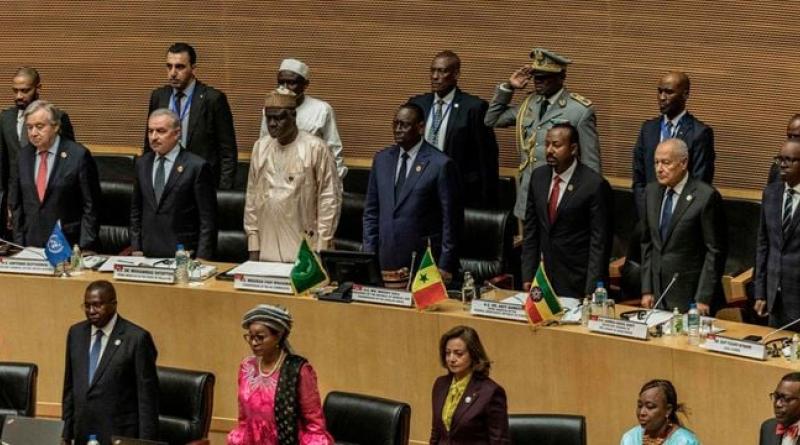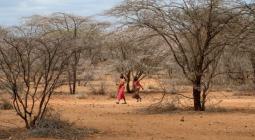African leaders cautioned against fossil fuels at AU summit

As the African Union Summit gets underway in Addis Ababa, Ethiopia, this weekend, energy transition is expected to top the agenda, even civil society groups caution leaders against fossil-fuel expansion projects on the continent.
President William Ruto has been spearheading Africa’s climate change agenda at the summit that started on Saturday.
“As a champion for climate action, President Ruto will advocate for Africa’s potential to lead the world and demonstrate that the continent can industrialise, thrive and prosper in a low-carbon and sustainable manner,” State House said in a statement.
“The president will be setting the course for a safer and cleaner future which will be powered by renewable energy,” State House added.
Civil Society Organisations across Africa have, however, called on the African Union to play “a more ambitious role” to promote a “fossil-free energy future.”
Africa has found itself in a quandary in recent years, with discovery of fossil fuel deposits at a time the world is seeking to transition to cleaner and renewable energy forms.
While these resources could significantly spur economic development, the continent has had to make the difficult decision to go green with the rest of the world.
There are several ongoing large-scale fossil fuel extraction projects in Africa involving oil and gas and coal.
Kenya is intending to start coal mining at the coastal belt and in Kitui County while plans for oil extraction in Uganda are at an advanced stage.
In 2019, residents of Mui Basin in Kitui County petitioned Parliament to have the proposed coal project by the government stopped due to environmental and health risks it poses.
Since its commencement three years ago, the East African Crude Oil Pipeline (EACOP) project in Uganda has run into headwinds following concerns of environmental degradation, pollution and the associated health risks.
In a report “Fossil Fuelled Fallacy Report”, the civil society organisations (CSOs) have cautioned against what they term as misleading promises of fossil gas expansions.
The report was first launched last year jointly by Don’t Gas Africa and the Fossil Fuel Treaty Initiative at COP27 in Egypt.
The CSO now claim that expanding gas production in Africa “would undermine almost every element of development” while causing health problems and destroying livelihoods on the continent.
Energy access
Proponents of clean energy in Africa say that the Addis summit “presents an important opportunity for the continent to expand energy access and accelerate the transition to clean, renewable energy.”
There are, however, fears that the conference might be hijacked by the oil industry to advance agenda that increases the continent’s reliance on fossil fuels.
Already, there are concerns that the proposal by Africa’s infrastructure and energy ministers fell short of setting clear goals for energy access and transition in Africa.
Meanwhile, some argue that the ministers' collective position defies the Paris Agreement’s warming limit of 1.5° Celsius.
It is also inconsistent with “Africa’s wider development objectives” which threatens the continent’s Agenda 2063, they claim.
Entities that have been pushing for clean energy initiatives note that African leaders could use the meet to “define and set a common narrative” that will catalyse a rapid transition to clean and renewable energy in a manner that puts people at the centre of the equation.
Statistics show that more than 600 million Africans lack a reliable means to power their homes, a situation that has been made worse by a raging climate change.
The Coordinator for Africa Climate Movement Building Space Lorraine Chiponda says that extraction of fossil fuels will continue to put Africa on a destructive path.
“African leaders must co-create a just development path together with African people that is clean, pan-African and champions people’s regenerative economies away from fossil fuels,” says Chiponda.
Courtney Morgan, a campaigner at African Climate Reality Project dismisses oil and gas as “a bridge to nowhere” that will neither solve Africa’s energy challenges nor make lives better.
“Decision makers and policy makers should be supporting sustainable solutions for a fossil-free Africa. The neocolonial gas projects on our continent will [only] exacerbate the climate crisis,” says Morgan.
Don’t Gas Africa has argued African leaders at the summit to initiate a process of transparent and meaningful dialogue that will explore ways of investing in clean energy forms instead of “selling away fossil fuel extraction rights to big multinational companies.”
Jkgitau@ke.nationmedia.com





